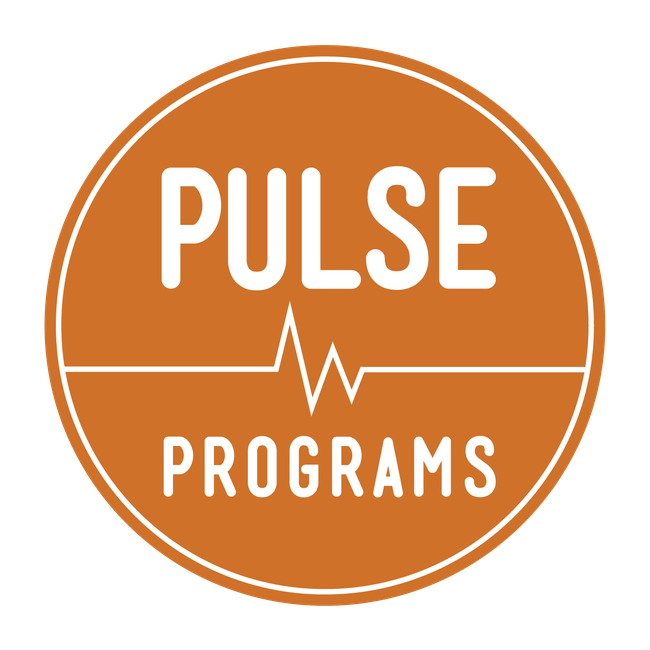Learning Domain: Speaking and Listening
Standard: Initiate and participate effectively in a range of collaborative discussions (one-on-one, in groups, and teacher-led) with diverse partners on grades 11–12 topics, texts, and issues, building on others’ ideas and expressing their own clearly and persuasively.
Degree of Alignment:
Not Rated
(0 users)
Learning Domain: Speaking and Listening
Standard: Come to discussions prepared, having read and researched material under study; explicitly draw on that preparation by referring to evidence from texts and other research on the topic or issue to stimulate a thoughtful, well-reasoned exchange of ideas.
Degree of Alignment:
Not Rated
(0 users)
Learning Domain: Speaking and Listening
Standard: Work with peers to promote civil, democratic discussions and decision-making, set clear goals and deadlines, and establish individual roles as needed.
Degree of Alignment:
Not Rated
(0 users)
Learning Domain: Speaking and Listening
Standard: Propel conversations by posing and responding to questions that probe reasoning and evidence; ensure a hearing for a full range of positions on a topic or issue; clarify, verify, or challenge ideas and conclusions; and promote divergent and creative perspectives.
Degree of Alignment:
Not Rated
(0 users)
Learning Domain: Speaking and Listening
Standard: Respond thoughtfully to diverse perspectives; synthesize comments, claims, and evidence made on all sides of an issue; resolve contradictions when possible; and determine what additional information or research is required to deepen the investigation or complete the task.
Degree of Alignment:
Not Rated
(0 users)
Learning Domain: Speaking and Listening
Standard: Evaluate a speaker’s point of view, reasoning, and use of evidence and rhetoric, assessing the stance, premises, links among ideas, word choice, points of emphasis, and tone used.
Degree of Alignment:
Not Rated
(0 users)
Learning Domain: Speaking and Listening
Standard: Present information, findings, and supporting evidence, conveying a clear and distinct perspective, such that listeners can follow the line of reasoning, alternative or opposing perspectives are addressed, and the organization, development, substance, and style are appropriate to purpose, audience, and a range or formal and informal tasks.
Degree of Alignment:
Not Rated
(0 users)
Learning Domain: Speaking and Listening
Standard: Initiate and participate effectively in a range of collaborative discussions (one-on-one, in groups, and teacher-led) with diverse partners on grades 9–10 topics, texts, and issues, building on others’ ideas and expressing their own clearly and persuasively.
Degree of Alignment:
Not Rated
(0 users)
Learning Domain: Speaking and Listening
Standard: Come to discussions prepared, having read and researched material under study; explicitly draw on that preparation by referring to evidence from texts and other research on the topic or issue to stimulate a thoughtful, well-reasoned exchange of ideas.
Degree of Alignment:
Not Rated
(0 users)
Learning Domain: Speaking and Listening
Standard: Work with peers to set rules for collegial discussions and decision-making (e.g., informal consensus, taking votes on key issues, presentation of alternate views), clear goals and deadlines, and individual roles as needed.
Degree of Alignment:
Not Rated
(0 users)
Learning Domain: Speaking and Listening
Standard: Propel conversations by posing and responding to questions that relate the current discussion to broader themes or larger ideas; actively incorporate others into the discussion; and clarify, verify, or challenge ideas and conclusions.
Degree of Alignment:
Not Rated
(0 users)
Learning Domain: Speaking and Listening
Standard: Respond thoughtfully to diverse perspectives, summarize points of agreement and disagreement, and, when warranted, qualify or justify their own views and understanding and make new connections in light of the evidence and reasoning presented.
Degree of Alignment:
Not Rated
(0 users)
Learning Domain: Writing
Standard: Use technology, including the Internet, to produce, publish, and update individual or shared writing products in response to ongoing feedback, including new arguments or information.
Degree of Alignment:
Not Rated
(0 users)
Learning Domain: Writing
Standard: Use technology, including the Internet, to produce, publish, and update individual or shared writing products, taking advantage of technology’s capacity to link to other information and to display information flexibly and dynamically.
Degree of Alignment:
Not Rated
(0 users)
Learning Domain: Speaking and Listening
Standard: Initiate and participate effectively in a range of collaborative discussions (one-on-one, in groups, and teacher-led) with diverse partners on grades 11���12 topics, texts, and issues, building on others�۪ ideas and expressing their own clearly and persuasively.
Degree of Alignment:
Not Rated
(0 users)
Learning Domain: Speaking and Listening
Standard: Come to discussions prepared, having read and researched material under study; explicitly draw on that preparation by referring to evidence from texts and other research on the topic or issue to stimulate a thoughtful, well-reasoned exchange of ideas.
Degree of Alignment:
Not Rated
(0 users)
Learning Domain: Speaking and Listening
Standard: Work with peers to promote civil, democratic discussions and decision-making, set clear goals and deadlines, and establish individual roles as needed.
Degree of Alignment:
Not Rated
(0 users)
Learning Domain: Speaking and Listening
Standard: Propel conversations by posing and responding to questions that probe reasoning and evidence; ensure a hearing for a full range of positions on a topic or issue; clarify, verify, or challenge ideas and conclusions; and promote divergent and creative perspectives.
Degree of Alignment:
Not Rated
(0 users)
Learning Domain: Speaking and Listening
Standard: Respond thoughtfully to diverse perspectives; synthesize comments, claims, and evidence made on all sides of an issue; resolve contradictions when possible; and determine what additional information or research is required to deepen the investigation or complete the task.
Degree of Alignment:
Not Rated
(0 users)
Learning Domain: Speaking and Listening
Standard: Evaluate a speaker's point of view, reasoning, and use of evidence and rhetoric, assessing the stance, premises, links among ideas, word choice, points of emphasis, and tone used.
Degree of Alignment:
Not Rated
(0 users)
Learning Domain: Speaking and Listening
Standard: Present information, findings, and supporting evidence, conveying a clear and distinct perspective, such that listeners can follow the line of reasoning, alternative or opposing perspectives are addressed, and the organization, development, substance, and style are appropriate to purpose, audience, and a range or formal and informal tasks.
Degree of Alignment:
Not Rated
(0 users)
Learning Domain: Speaking and Listening
Standard: Initiate and participate effectively in a range of collaborative discussions (one-on-one, in groups, and teacher-led) with diverse partners on grades 9���10 topics, texts, and issues, building on others�۪ ideas and expressing their own clearly and persuasively.
Degree of Alignment:
Not Rated
(0 users)
Learning Domain: Speaking and Listening
Standard: Come to discussions prepared, having read and researched material under study; explicitly draw on that preparation by referring to evidence from texts and other research on the topic or issue to stimulate a thoughtful, well-reasoned exchange of ideas.
Degree of Alignment:
Not Rated
(0 users)
Learning Domain: Speaking and Listening
Standard: Work with peers to set rules for collegial discussions and decision-making (e.g., informal consensus, taking votes on key issues, presentation of alternate views), clear goals and deadlines, and individual roles as needed.
Degree of Alignment:
Not Rated
(0 users)
Learning Domain: Speaking and Listening
Standard: Propel conversations by posing and responding to questions that relate the current discussion to broader themes or larger ideas; actively incorporate others into the discussion; and clarify, verify, or challenge ideas and conclusions.
Degree of Alignment:
Not Rated
(0 users)
Learning Domain: Speaking and Listening
Standard: Respond thoughtfully to diverse perspectives, summarize points of agreement and disagreement, and, when warranted, qualify or justify their own views and understanding and make new connections in light of the evidence and reasoning presented.
Degree of Alignment:
Not Rated
(0 users)
Learning Domain: Writing
Standard: Use technology, including the Internet, to produce, publish, and update individual or shared writing products in response to ongoing feedback, including new arguments or information.
Degree of Alignment:
Not Rated
(0 users)
Learning Domain: Writing
Standard: Use technology, including the Internet, to produce, publish, and update individual or shared writing products, taking advantage of technology�۪s capacity to link to other information and to display information flexibly and dynamically.
Degree of Alignment:
Not Rated
(0 users)
Cluster: Production and Distribution of Writing.
Standard: Use technology, including the Internet, to produce, publish, and update individual or shared writing products, taking advantage of technology’s capacity to link to other information and to display information flexibly and dynamically.
Degree of Alignment:
Not Rated
(0 users)
Cluster: Comprehension and Collaboration.
Standard: Initiate and participate effectively in a range of collaborative discussions (one-on-one, in groups, and teacher-led) with diverse partners on grades 9–10 topics, texts, and issues, building on others’ ideas and expressing their own clearly and persuasively.
Degree of Alignment:
Not Rated
(0 users)
Cluster: Comprehension and Collaboration.
Standard: Come to discussions prepared, having read and researched material under study; explicitly draw on that preparation by referring to evidence from texts and other research on the topic or issue to stimulate a thoughtful, well-reasoned exchange of ideas.
Degree of Alignment:
Not Rated
(0 users)
Cluster: Comprehension and Collaboration.
Standard: Work with peers to set rules for collegial discussions and decision-making (e.g., informal consensus, taking votes on key issues, presentation of alternate views), clear goals and deadlines, and individual roles as needed.
Degree of Alignment:
Not Rated
(0 users)
Cluster: Comprehension and Collaboration.
Standard: Propel conversations by posing and responding to questions that relate the current discussion to broader themes or larger ideas; actively incorporate others into the discussion; and clarify, verify, or challenge ideas and conclusions.
Degree of Alignment:
Not Rated
(0 users)
Cluster: Comprehension and Collaboration.
Standard: Respond thoughtfully to diverse perspectives, summarize points of agreement and disagreement, and, when warranted, qualify or justify their own views and understanding and make new connections in light of the evidence and reasoning presented.
Degree of Alignment:
Not Rated
(0 users)
Cluster: Production and Distribution of Writing.
Standard: Use technology, including the Internet, to produce, publish, and update individual or shared writing products in response to ongoing feedback, including new arguments or information.
Degree of Alignment:
Not Rated
(0 users)
Cluster: Comprehension and Collaboration.
Standard: Initiate and participate effectively in a range of collaborative discussions (one-on-one, in groups, and teacher-led) with diverse partners on grades 11–12 topics, texts, and issues, building on others’ ideas and expressing their own clearly and persuasively.
Degree of Alignment:
Not Rated
(0 users)
Cluster: Comprehension and Collaboration.
Standard: Come to discussions prepared, having read and researched material under study; explicitly draw on that preparation by referring to evidence from texts and other research on the topic or issue to stimulate a thoughtful, well-reasoned exchange of ideas.
Degree of Alignment:
Not Rated
(0 users)
Cluster: Comprehension and Collaboration.
Standard: Work with peers to promote civil, democratic discussions and decision-making, set clear goals and deadlines, and establish individual roles as needed.
Degree of Alignment:
Not Rated
(0 users)
Cluster: Comprehension and Collaboration.
Standard: Propel conversations by posing and responding to questions that probe reasoning and evidence; ensure a hearing for a full range of positions on a topic or issue; clarify, verify, or challenge ideas and conclusions; and promote divergent and creative perspectives.
Degree of Alignment:
Not Rated
(0 users)
Cluster: Comprehension and Collaboration.
Standard: Respond thoughtfully to diverse perspectives; synthesize comments, claims, and evidence made on all sides of an issue; resolve contradictions when possible; and determine what additional information or research is required to deepen the investigation or complete the task.
Degree of Alignment:
Not Rated
(0 users)
Cluster: Comprehension and Collaboration.
Standard: Evaluate a speaker’s point of view, reasoning, and use of evidence and rhetoric, assessing the stance, premises, links among ideas, word choice, points of emphasis, and tone used.
Degree of Alignment:
Not Rated
(0 users)
Cluster: Presentation of Knowledge and Ideas.
Standard: Present information, findings, and supporting evidence, conveying a clear and distinct perspective, such that listeners can follow the line of reasoning, alternative or opposing perspectives are addressed, and the organization, development, substance, and style are appropriate to purpose, audience, and a range or formal and informal tasks.
Degree of Alignment:
Not Rated
(0 users)

